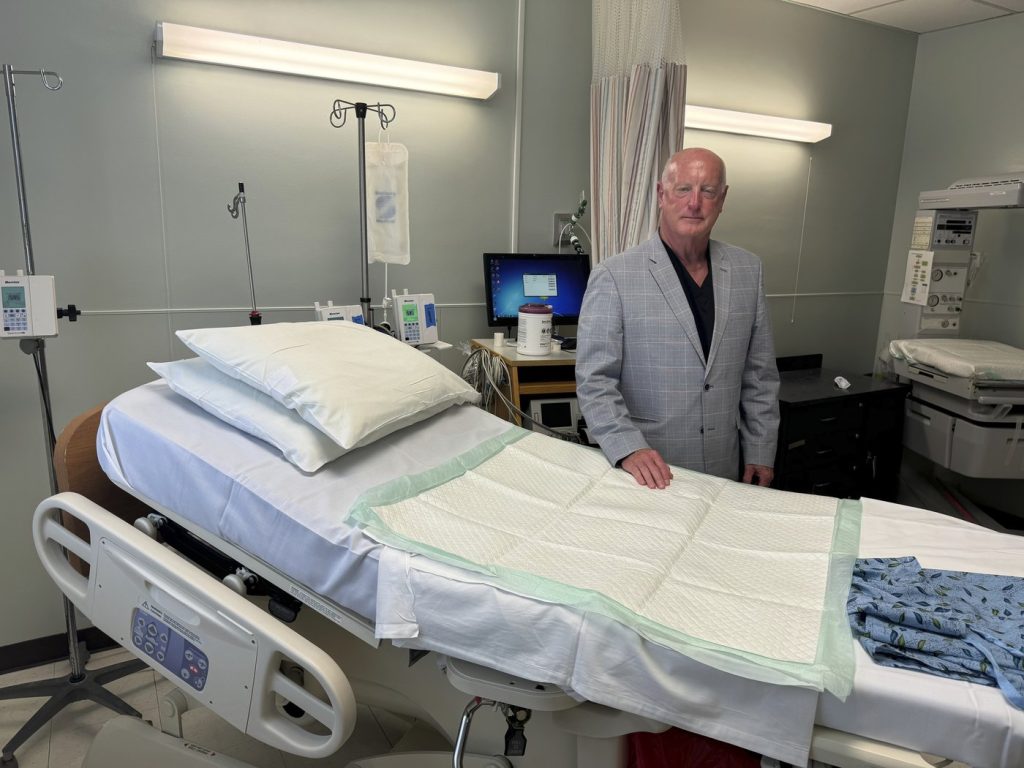In Montgomery, Alabama, a legislative bill aimed at expediting Medicaid coverage and prenatal healthcare for low-income pregnant women has gained traction. This initiative reflects a broader regional effort in the Southern United States, where lawmakers are increasingly concerned about rising maternal and infant mortality rates.
The proposed "presumptive eligibility" legislation allows Medicaid to cover outpatient medical care for pregnant women for up to 60 days while their applications for the government-funded program are processed. Representative Marilyn Lands, a Democrat from Huntsville who introduced the bill, emphasized the importance of reducing bureaucratic delays to facilitate quick access to necessary healthcare.
Lands noted that processing Medicaid applications can often take several weeks, and physicians underscore that early prenatal care is crucial for health outcomes. Disturbingly, data reveals that last year, nearly 20% of pregnant women in Alabama sought prenatal care after the fifth month of pregnancy or failed to receive at least half of the recommended visits during their gestation, according to The March of Dimes.
The legislation has been unanimously passed by the Alabama House of Representatives and is now set to be reviewed by the Senate. Republican lawmakers in Alabama hailed the bill as a "pro-life" measure, highlighting their commitment to improving maternal health.
Alabama's maternal health outcomes remain significantly lower than national averages. A study indicated that the state experienced a maternal mortality rate of 64.63 deaths per 100,000 births from 2018 to 2021, nearly double the national average of 34.09 per 100,000 births. The situation is more dire for Black women in Alabama, with a staggering maternal mortality rate of 100.07 deaths per 100,000 births.
To address these concerning statistics, legislators in Mississippi and Arkansas have also proposed similar measures aimed at enhancing prenatal coverage for expectant mothers. Notably, Mississippi passed a nearly identical law last year, but its implementation was stalled due to unresolved negotiations with the federal Medicaid agency.
Both Alabama and Mississippi are among the ten states in the U.S. that have not expanded Medicaid. As a result, many low-income women can only access Medicaid after becoming pregnant. In Alabama, one in six women of childbearing age falls into a coverage gap, earning too much to qualify for Medicaid yet too little to afford private insurance.
A pregnant woman in Alabama without dependents is eligible for Medicaid if her income is $21,996 or less, or up to $37,704 for a household of three. According to recent reports from the Alabama Department of Public Health, Medicaid financed 45% of all births in the state in 2023, and more than half of infant deaths identified occurred among mothers who were Medicaid recipients.
Dr. Max Rogers, an obstetrician-gynecologist specializing in care for low-income pregnant women in rural areas, emphasized that early medical intervention during the first trimester is critical for ensuring a safer pregnancy and identifying potential health threats. He noted that conditions like high blood pressure or diabetes require timely management to improve long-term outcomes for both mothers and infants.
Despite Dr. Rogers' support for the bill, he cautioned that effective implementation will require additional measures to enhance healthcare access. He highlighted the importance of ensuring patients can reach their healthcare providers to effectively utilize available services. His own practice has faced challenges due to the closure of several labor and delivery units in Alabama, further exacerbating the difficulties in accessing prenatal care, particularly in rural communities.
As the bill progresses through the legislative process, the focus remains on addressing the gaps in access to healthcare and improving the overall maternal and infant health landscape in Alabama and similar states.










